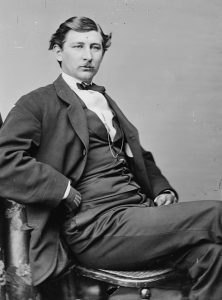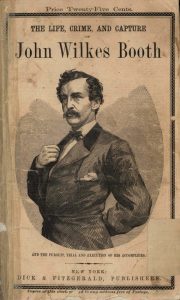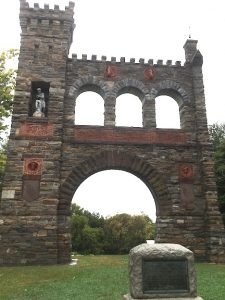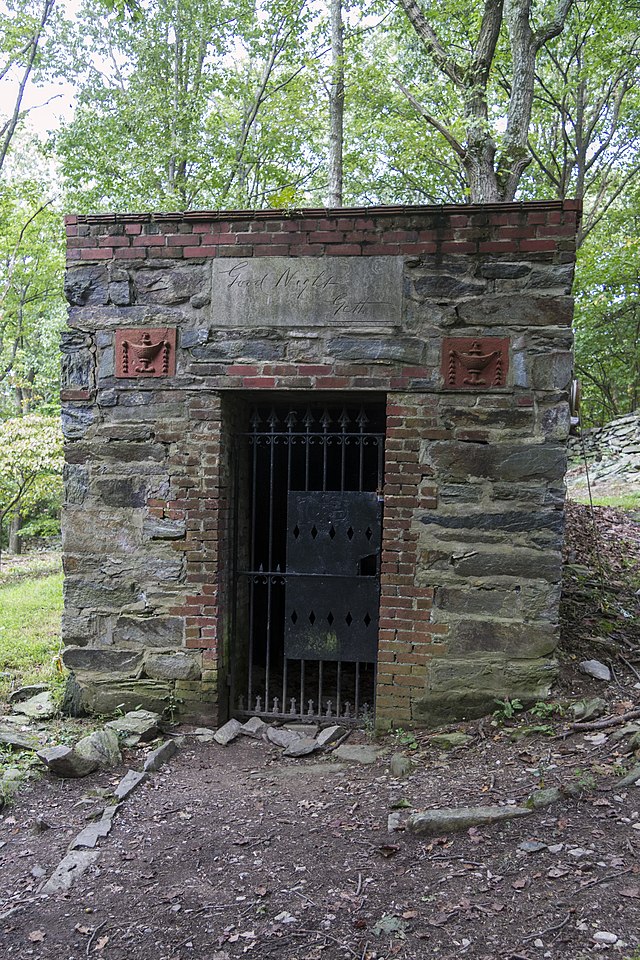The Original Bohemian: George Alfred Townsend

Having spent the better part of the past two years playing the part of Gen. Ulysses S. Grant for a traveling play—“Now We Stand by Each Other Always”—it has been a restless few months idle as show after show has been cancelled. Featuring a conversation between Grant and Gen. William Tecumseh Sherman, the play has been a great way to bring these important historical figures to life.
Lately, I have been considering other conversations that might be staged in a similar vein. The latest idea is a conversation between Grant and a friendly journalist. Near the end of the war, the two men would be portrayed sitting around a campfire at City Point, Virginia, and casually talking about where the War had been and how it might end. I have settled upon George Alfred Townsend of The New York World as just the correspondent I am looking for.

A native of Delaware, Townsend came from humble beginnings as the son of an itinerant minister. Soon after completing a Bachelor of Arts degree, Townsend became a news editor for the Philadelphia Inquirer. As the North and South swung to war, the young journalist enjoyed publication of a play he wrote called “The Bohemians”.[i]
Townsend began a memorable career as a war correspondent in 1862 traveling with the Army of the Potomac during The Peninsula Campaign before undertaking a lucrative lecture tour in England. The fresh-faced twenty-one year old spun captivating tales of the war in America to the delight of Brits anxious for insights about the Civil War.[ii]
By 1865 Townsend was back in the field, now using the pen-name of GATH. Reporting for the New York World, Townsend haunted the camps around City Point and Petersburg. “I am sitting by Sheridan’s campfire,” GATH famously wrote in the hours after Sheridan had turned Lee’s flank at Five Forks. “A cowed and shivering silence has succeeded the late burst of drums, trumpets, and cannon; the dead are at rest; the captives are quiet; the good cause has won again.”[iii]

Although Townsend had won accolades for his work during the war, it was his coverage of the assassination of Lincoln that vaulted him into the ranks of the elite journalists of the age. His in-depth columns would later be published as The Life, Crime and Capture of John Wilkes Booth.
As one of the most successful journalists of his time, Townsend was able accumulate a tidy fortune which enabled him to buy a 100 acre parcel of land near Crampton’s Gap, South Mountain, Maryland. There, he built a baronial estate he called Gapland. Near the end of the century, Townsend built a monument to war correspondents to memorialize the contributions of his colleagues North and South. Dedicated in 1896, the memorial arch is 50 foot high and 40 feet wide. The War Correspondent Memorial Arch now stands on the grounds of the Gathland State Park, part of Townsends original estate, now operated by the Maryland Department of Natural Resources.[iv]
Townsend died in 1914 in New York City, though he is buried in Philadelphia. Years earlier he had constructed a tomb for himself at Gapland. The mausoleum sits empty and silent today in the Maryland mountains, unused, but carries a parting message from the notable author – “Good Night”, it reads, signed simply “Gath.”[v]

Sources:
[i] James M. Perry. A Bohemian Brigade: The Civil War Correspondents. New York: Wiley & Sons, 2000.
[ii] Ibid.
[iii] Ibid, 265.
[iv] https://dnr.maryland.gov/publiclands/Pages/western/Gathland/History-Gathland.aspx. Accessed August 2, 2020.
[v] Ibid.
On any tour of the Battle of South Mountain, you can readily access this site.
Townsend created wonderful visual images in his writing. He was in Culpeper during the Cedar Mountain fight. He wrote of the Federals moving through the town on their way to the August 9 battle.
“Regiments were pouring by all the roads and lanes into the main street, and the spectacle of thousands of bayonets, extending as far as the eye could reach, was enhanced by the music of a score of bands, throbbing all at the same moment with wild music….’St. Patrick’s Day,’ intermingled with the weird refrain of ‘Bonnie Dunder,’ and snatches of German sword-songs were drowned by the thrilling of the ‘Star Spangled Banner,’…Suddenly, as if by rehearsal all hats would go up, all bayonets toss and glisten, and huzzas would deafen the winds, while the horses reared upon their haunches and the sabres rose and fell. Then column by column, the masses passed eastward, while prisoners in the courthouse cupola looked down, and the citizens peeped in fear through crevices of windows.”
You write that Townsend did a good job covering Lincoln’s assassination. I’ve read the coverage, which is unsigned. How do you know which articles he wrote? Thanks, Bill Hendrick, wahendrick47@gmail.com
Thank you for posting this insightful article. I’m doing some family history research and trying to find more information about George Alfred Townsend and his contributions to U.S. history. I’m hoping to make it to Gathland State Park and see the memorial and mausoleum.